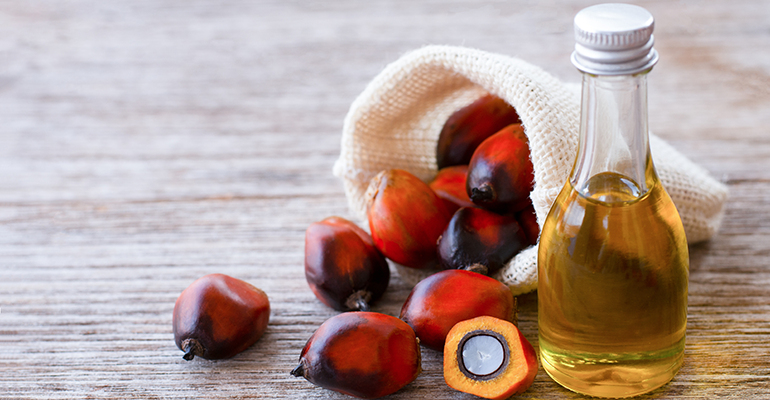News
Indonesia and Malaysia delegation to meet with EU over palm oil row
13 Feb 2023
Indonesian and Malaysian ministers will meet with European Union counterparts as anger mounts over the potential impact of the EU’s new deforestation law on their palm oil sectors.
In a joint press conference on Thursday (Feb 9), Indonesia's coordinating minister for economic affairs Airlangga Hartarto met with Malaysian deputy prime minister Fadillah Yusof to consider “several pressing issues” linked to the palm oil industry.

The two ministers said that the Council of Palm Oil Producing Countries, an intergovernmental organisation for palm oil producing countries, would make up the delegation along with smallholders in the palm oil supply chain.
The discussions primarily concern the EU’s decision to introduce a deforestation law in December 2022 that compels companies to supply a due diligence statement that details a commodity’s origins.
The regulation requires suppliers to provide information about when and where the commodity was produced and provide reassurances it was not produced on land deforested after 2020 – or face severe penalties.
EU moves to clamp down on palm oil deforestation
Indonesia and Malaysia – two of the world's biggest palm oil producers – would be impacted by the regulation.
The two countries have rejected this notion, arguing that the palm oil policies are discriminatory and that they have taken measures to protect the environment as well as support local farmers.
 © iStock/richcarey
© iStock/richcarey
“We agreed to continue to protect the palm oil sector by strengthening efforts and cooperation to overcome discrimination against the palm oil industry,” said Airlangga.
“The meeting [with Malaysia] agreed to conduct a joint mission to the EU to communicate [to them] and prevent unintended consequences of the regulation to the palm oil sector and seek possible collaborative approaches with interested parties.”
The situation escalated last month after Malaysia threatened to stop exporting palm oil to the EU in response to the deforestation law.
At the time, EU Ambassador Michalis Rokas said, "[The law] applies equally to commodities produced in any country, including EU member states, and aims to ensure that commodity production does not drive further deforestation and forest degradation,"
EU accused of putting up palm oil barriers
Belvinder Sron, acting chief executive officer of the Malaysian Palm Oil Council (MPOC), said it has seen “many efforts by European special interest groups to ban or restrict palm oil”.
 © iStock/Andrew Linscott
© iStock/Andrew Linscott
“Our complaint is about discrimination, and unfair treatment. The EU is applying costs and barriers to palm oil, but not to other oils.
The regulation is a deliberate effort to reduce market access and increase the costs of Malaysia’s exports thus reducing the competitiveness of Malaysia’s palm oil.”
Despite Indonesia and Malaysia’s stance, Airlangga said the subject of an export boycott to the EU was not on the agenda in the conversation with Yusof.
“Stopping exports was not something that we had discussed. As a country involved in the import and export [of palm oil]… that was not an option,” said Airlangga.
Related news

UK Government overhauls childhood obesity strategy
21 Nov 2025
The UK Government has announced a new package of measures designed to reverse the nation’s childhood obesity epidemic following the release of statistics revealing the scale of the crisis.
Read more
How younger consumers are redefining ingredient choices and rejecting brand loyalty
18 Nov 2025
Gen Z and millennial consumers’ preferences for transparency, functionality, and purpose are “redefining the very nature of consumption itself”, says SPINS.
Read more
New UPF standard hoped to offer consumers ‘coherence and clarity’
10 Nov 2025
Ingredients companies are being urged to enter “a new era of partnership and innovation” following the launch of the industry’s first non-UPF verification scheme.
Read more
Ingredient quantities mislabelled on popular protein bars, independent tests show
5 Nov 2025
Some popular protein bars contain more fat, carbs, and/or sugars than claimed on their labels, independent nutrition testing reveals.
Read more
Does promoting protein content push up plant-based sales?
27 Oct 2025
Promoting the protein content of meat-free products is a more effective sales strategy than adding carbon labels, a study of UK bakery chain Greggs suggests.
Read more
Supplement shoppers seek storytelling and science-backed suppliers
17 Oct 2025
Supplement consumers want specific health benefits that focus on prevention and personalisation, according to data from HealthFocus International.
Read more
Food fraud risks rise as brands fight economic and environmental headwinds
10 Oct 2025
Climate change, geopolitics, regulations, and demand for sustainable products are pushing up food fraud and adulteration risks, warns a world-leading food fraud expert.
Read more
The growing appeal of nutrient-dense food claims
2 Oct 2025
Nutrient-dense claims are rising as consumers reject the “empty calories” of UPFs in favour of products that provide meaningful nutrition with every calorie, Mintel data shows.
Read more
What does MAHA mean for the US nutraceutical industry?
30 Sep 2025
Industry associations have expressed mixed reactions to new policy directions on health and nutrition under the Make America Health Again (MAHA) banner.
Read more
Eco-Score labels improve consumer identification of sustainable foods
22 Sep 2025
The presence of a front-of-pack Eco-Score label improves consumers' accuracy in identifying sustainable food products from 52% to 72%, a study suggests.
Read more